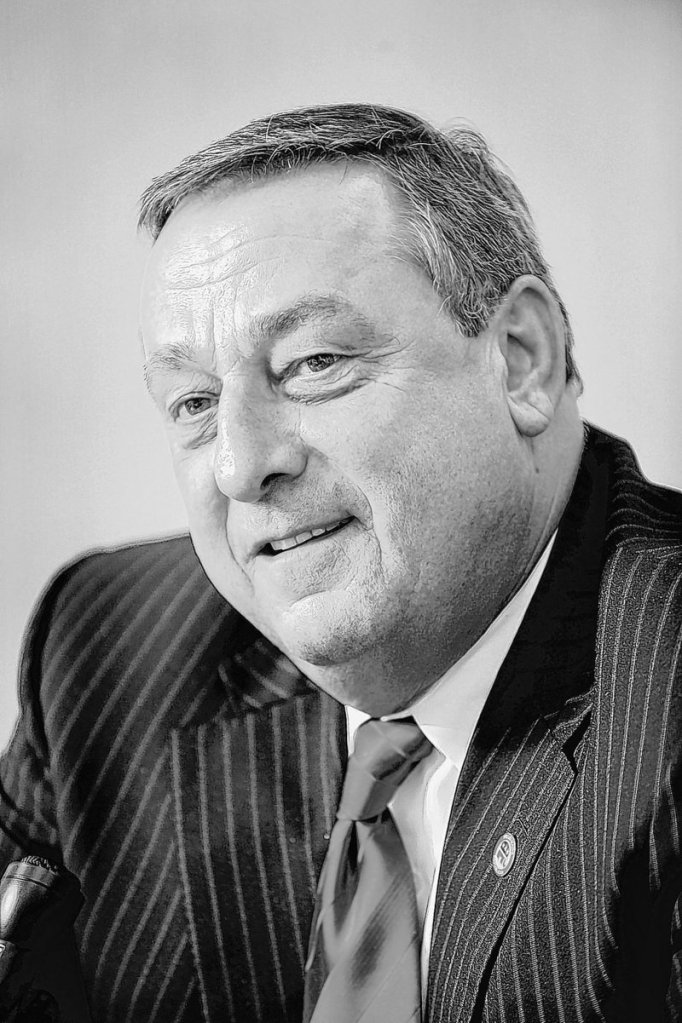Paul LePage’s victory in the race for Maine’s governor has been predicted by so many polls it’s easy to forget what a dramatic shift it represents in the state’s political history.
LePage is a phenomenon who arrived on the scene last year with little name recognition and none of the resume bullets that usually accompany serious contenders for Maine’s highest office. He sweeps into power with a legislative majority no governor of his party has enjoyed in 40 years.
He ran on a platform of cutting spending, reducing regulation and making the state more friendly to business. Whether this means, as his opponents have charged, a retreat from Maine’s commitment to education, protecting the environment and taking care of the most vulnerable in society, will be the political story of the next four years.
YEAR OF SURPRISES
But before looking ahead, it’s worth tracing LePage’s remarkable rise and the wild political year that has ended with his election, after a neck-and-neck finish against Eliot Cutler, the independent, who, like LePage, was virtually unknown in political circles at this time just a year ago.
The mayor of a medium-sized city and the general manager of Marden’s, a favorite haunt of the state’s bargain- hunters, LePage echoed the themes of the tea party movement, and its protest against the institutional leadership of both parties.
His life story is now part of our political lore: A homeless child from a dysfunctional family, LePage said he managed to work his way out of poverty and promised to help others do the same.
LePage ran in a crowded primary against establishment opponents with political experience and well-known business leaders who all outspent him. But the strong commitment of his supporters set him apart, including the group that took over the Republican Platform Committee at the state convention, passing a version of the document clearly stating that this was not going to be a party that would be looking for middle ground.
LePage won the June primary handily, and according to the polls, led the general election campaign from day one. In many ways, the real race was between his opponents seeking to establish themselves as the best bet to beat the Waterville mayor in November.
LePage survived a number of missteps along the way. He stormed out of a press conference when he was unhappy with the questions he was being asked. Later, he used an obscenity in a radio interview and was recorded promising a group of fishermen that if he was elected “you’re going to be seeing a lot of me on the front page, saying ‘Gov. LePage tells Obama to go to hell.”‘
In the last months of the campaign, LePage stayed away from unscripted encounters with the media, forgoing endorsement board interviews with this and other newspapers and limiting his time on air to media outlets he saw as friendly.
The strategy appeared to pay off, as LePage maintained a strong lead in the polls. But he had to withstand a furious charge from Cutler, who with the endorsement of Maine’s last independent governor, Angus King, came within 10,000 votes of winning the race.
Instead, it will be LePage who will soon govern a state suffering from economic doldrums and serious problems in the areas of energy costs, budget shortfalls, education needs and business growth.
He promises to do that by breaking with the principles of the last eight years by not just holding the line on taxes but by reducing their overall burden, as well as making it easier to start or expand a business in Maine. But LePage has promised to do more than cut. During the campaign he pledged to boost state education funding to the full 55 percent approved by voters, a level that Augusta has not reached under Democratic rule.
WHAT’S NEXT?
There is no question that LePage has been able to tap into a deep dissatisfaction that people all over the country are expressing about their government. The question will be whether he will be able to translate that sentiment into a coherent vision to lead the state. That will require speaking not just to his supporters, but to the people who opposed him.
At times, that may also mean speaking through the news media and answering challenging questions.
There is still a lot that is unknown, but one thing is clear: Maine has a new governor who has promised to take the state in an entirely new direction. And, with a friendly Legislature, he has the tools to do it.
Copy the Story Link
Send questions/comments to the editors.



Success. Please wait for the page to reload. If the page does not reload within 5 seconds, please refresh the page.
Enter your email and password to access comments.
Hi, to comment on stories you must . This profile is in addition to your subscription and website login.
Already have a commenting profile? .
Invalid username/password.
Please check your email to confirm and complete your registration.
Only subscribers are eligible to post comments. Please subscribe or login first for digital access. Here’s why.
Use the form below to reset your password. When you've submitted your account email, we will send an email with a reset code.